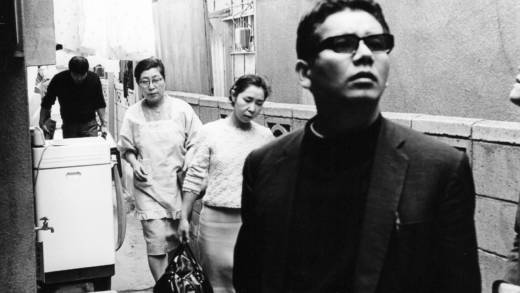San Francisco loves Werner Herzog. I can’t think of another documentary filmmaker, with the exception of locals Rob Epstein and Jeffrey Friedman, who can fill the upper reaches of the Castro. (Mind you, I’m not forgetting that Herzog initially made his reputation as a narrative filmmaker of astonishing audacity. It’s the rare film buff who doesn’t carry images from Aguirre, the Wrath of God and Fitzcarraldo imprinted on their memory, and psyche.) Herzog combines a unique view of the world with defiant contrarianism, both of which infuse the third and final weekend of the exciting SFMOMA and S.F. Film Society series, Modern Cinema: Werner Herzog and Ecstatic Truth.

Herzog has famously and repeatedly railed against cinema verité — (supposedly) objective, observational nonfiction filmmaking — as “the truth of accountants.” That is, facts and information without insight, interpretation or feeling. Herzog seeks a more profound and poetic connection with his subjects, which he calls “ecstatic truth.” The scintillating smorgasbord on display this Thursday through Sunday, Feb. 23–26, begins with Herzog’s Wodaabe: Herdsmen of the Sun (1989), a 52-minute immersion into the life and rituals of a tribe of southern Saharn nomads that’s packed with mesmerizing sequences.
The lineup makes room among the wealth of Herzog titles for a few well-chosen kindred spirits, notably the groundbreaking 1967 epic, A Man Vanishes, in which filmmaker Shôhei Imamura insinuates himself into the proceedings and slyly influences what he is “documenting.” Released the same year, Shirley Clarke’s Portrait of Jason is a head-on interview with Jason Holliday, a black gay performer and prostitute who is also an undeniably fascinating and questionably reliable narrator. With documentaries, as with so much else, it’s wise to question the truth rather than simply swallow it.



